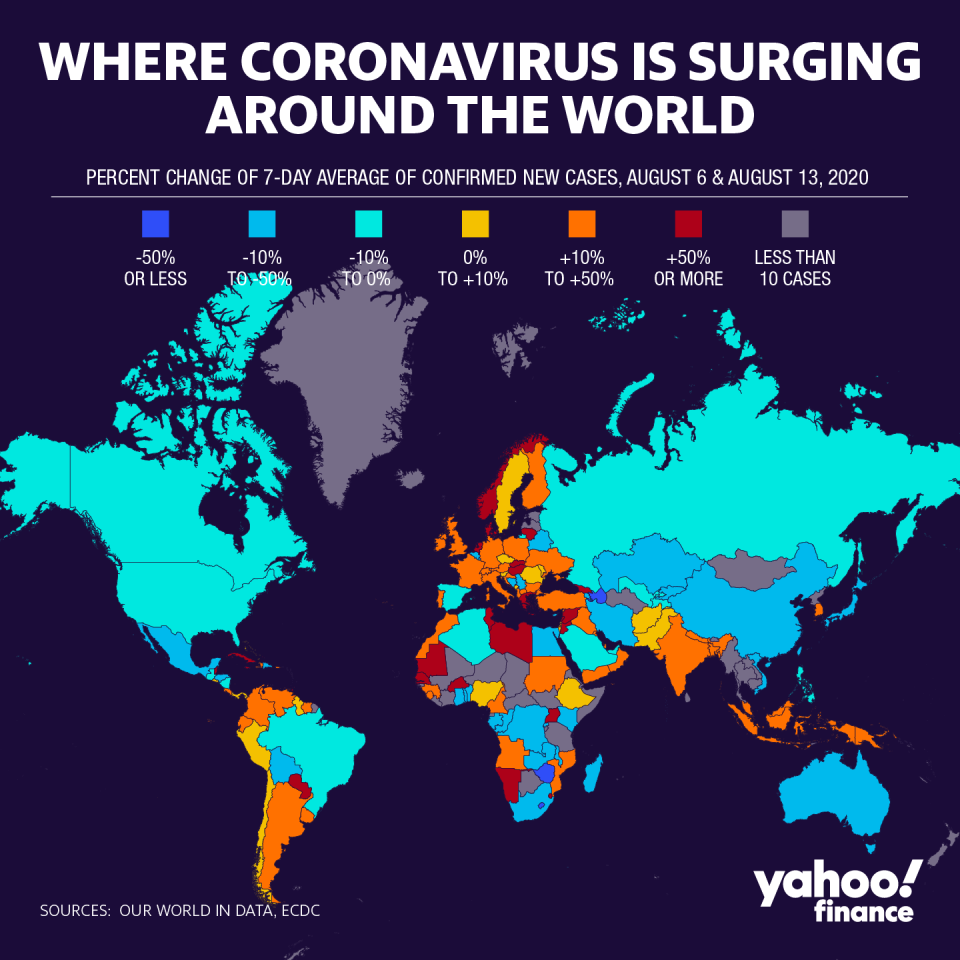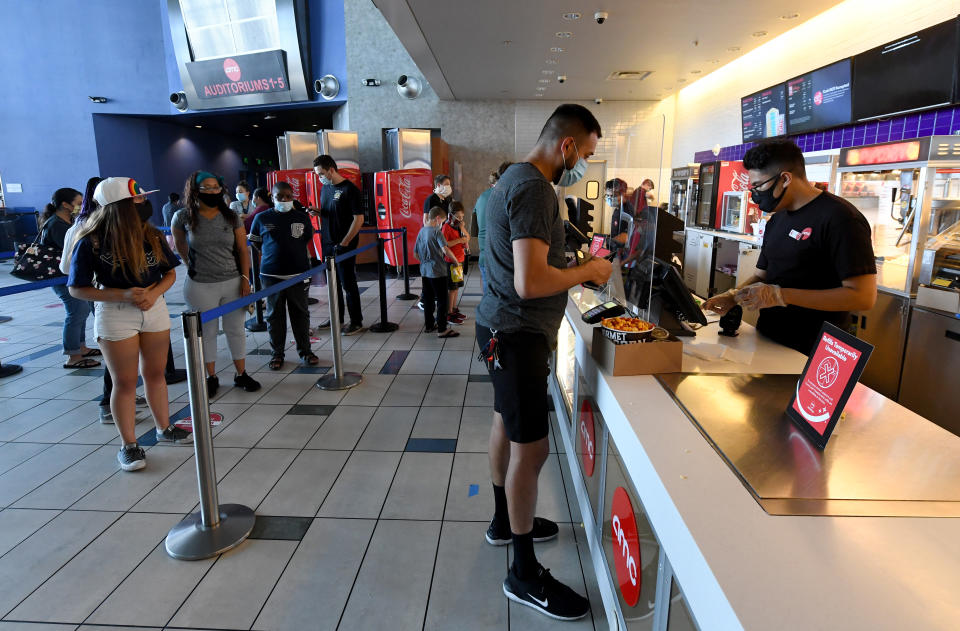SAG-AFTRA on why Hollywood's slow post-coronavirus restart hasn't been a 'light switch'
Hollywood has been slow to reopen amid the coronavirus pandemic — even with detailed safety and sanitation measures in place.
In June, SAG-AFTRA — in conjunction with other Hollywood unions and guilds — released a detailed report outlining new health and safety procedures. The move followed a three-month industry shutdown that left the majority of workers furloughed or unemployed, and cost the industry billions as new movies got shelved.
“I think we all understood it wasn’t going to be a light switch,” SAG-AFTRA COO Duncan Crabtree-Ireland told Yahoo Finance in a recent interview. “There was a lot of work that had to be done to make sets safe for performers and crew to come back.”
Still, the show must go on. Although production levels are “not what we would normally expect at this point in the year,” there are still a significant number of productions underway in Los Angeles County, according to Crabtree-Ireland.
Meanwhile, there are also a significant number of productions overseas. Films like “Avatar,” “Jurassic World” — and now “Matrix 4” — are all currently filming abroad. They are capitalizing on the backdrop of other nations like New Zealand that have appeared to have tackled the pandemic more effectively.
“We haven’t detected an unusual increase in filming outside of the United States,” Crabtree-Ireland said.
“In fact, there’s a lot of concern abut production happening outside of the U.S. because of the volatile nature of the pandemic,” he explained.
“Cast and crew don’t want to end up stuck somewhere unable to come home...there is a balance going on there,” Crabtree-Ireland added. “Obviously, there are some places in the world that are in better shape than [the U.S.] with respect to COVID-19, but I think we’ve all learned that those things can change very rapidly.”

Meanwhile, with Congress still at a standstill when it comes to passing its next coronavirus stimulus package, Hollywood employees are gasping for air.
“One of the things we’re really hoping will be addressed is what’s called a mixed earner problem. This is where people work both as a 1099 [contract] workers and also as a W-2 employee,” Crabtree-Ireland said.
“The problem lies in the way the current relief has been structured. If you make a little bit of money as a W-2 employee and a lot of money as a 1099 contractor, that little bit you earn as an employee basically prevents you from getting the kind of unemployment relief that other people would be getting in terms of pandemic assistance,” he explained.
“[There are] working actors who are struggling to pay their bills, to keep the lights on, to pay the rent — they really need the help, and I hope that Congress and the White House will take action,” he added.
And with the pandemic’s unpredictability, the possibility of future shutdowns is a grim reality — especially for smaller, independent productions.
To help combat the problem, the UK government recently launched a $646 million emergency coronavirus insurance fund. The new fund will help offset coronavirus-related losses, boost the industry’s production pipeline and offer a safety net should future film delays or disruptions occur.
So far, the U.S. has yet to respond with a safety net of its own.
“If you’re an independent producer, it’s really hard to get that kind of investment committed without some kind of insurance to ensure there will be a place to fall back on, in the event production has to stop due to a COVID-19 incident,” Crabtree-Ireland said.
“It seems likely that the only way insurers are going to be willing to step up and play the role they played in the past is if there is some kind of stop-loss program or some kind of backup done by the federal or state governments,” he explained.
“That’s a real necessity [and] we hope progress is made so that independent productions can be protected and can continue to grow in the United States,” he concluded.
Theaters reopen despite new content crunch
However, there are some signs of hope as big movie chains like AMC (AMC), Cinemark (CNK) and Regal theater chains officially reopen their doors — at least partially. Still, big markets, including those in New York and California, remain shuttered.
AMC, which celebrated its reopening with $0.15 tickets on Thursday, opened approximately 100 of its theater locations across the United States with a goal of reopening an additional 400-600 prior to the release of Christopher Nolan’s “Tenet” on September 3.

AMC CEO Adam Aron told Fox Business on Thursday that people seem excited to get back to the movies, revealing, “We're only selling 30 percent of our seats, and so we are sold out today almost all across the country.”
With limited new releases, theater chains are relying on classic films from the past. “Empire Strikes Back,” “Black Panther,” “Grease,” “Ghostbusters,” and “Back to the Future” will all be shown at discounted rates.
Meanwhile, Russell Crowe’s “Unhinged” is the first major theatrical release with “The New Mutants” and “Tenet” following closely behind.
Alexandra is a Producer & Entertainment Correspondent at Yahoo Finance. Follow her on Twitter @alliecanal8193
Read more:
'Hamilton' popularity lifts Disney+ engagement 20% in July: Data
Why 'Tenet's' staggered rollout could be a risky move as on-demand movies soar
Beyoncé's 'Black Is King' underwhelms on Disney+ as 'Hamilton' holds strong, data shows
Analyst: VOD deal between NBCUniversal, AMC will likely 'dampen movie attendance,' hurt industry
